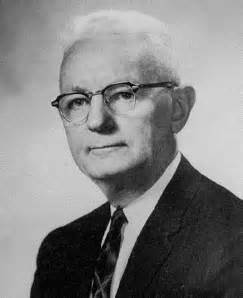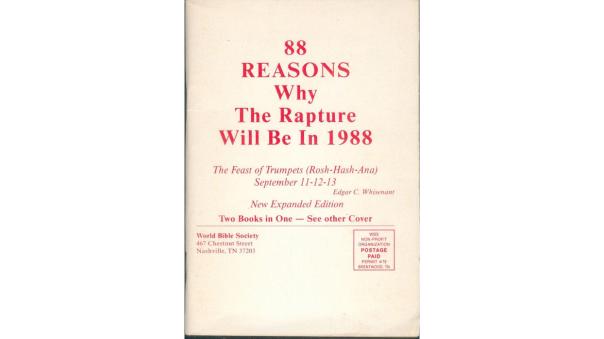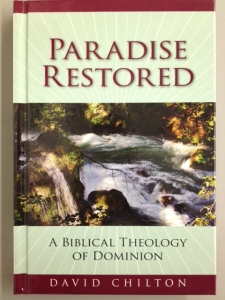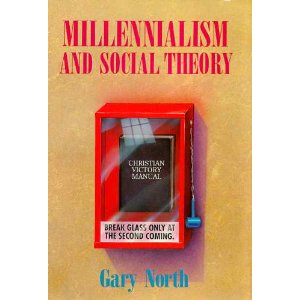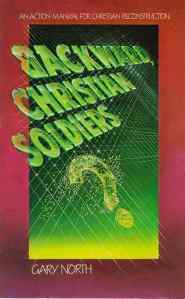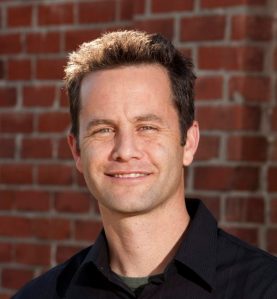Have you read “Dominion and Common Grace: The Biblical Basis of Progress” by Dr. Gary North?
Maybe I should ask you this first: Have you heard of “Dominion and Common Grace: The Biblical Basis of Progress” by Dr. Gary North?
I can understand why if you answered ‘no’ to either of these questions.
It’s not one of his more commonly known titles. It’s also not one of his more endearing like, say, “Millennialism and Social Theory” (with its focus on evangelism and the lost).
But it certainly is (at least for me) one of his more illuminating. And it is certainly one of his more controversial, at least in Reformed circles.
Wait.
Which one of Dr. Gary North’s books ISN’T controversial?!
Exactly.
Dominion and Common Grace
Granted, the title doesn’t pack the same polemic punch as, say, “Crossed Fingers: How the Liberals Captured the Presbyterian Church,” or, “The Hoax of Higher Criticism.”
And it doesn’t carry the sublime subtlety combined with in-your-face innuendo of “Westminster’s Confession” or “When Justice is Aborted.”
Still, like the titles I just mentioned, this book is both an analysis and a critique. Heavy on the critique.
On the positive side, it not only presents the problem, theologically and historically speaking, but it also proposes the solution: Dr. North’s Biblically-Based, Exegetically-Proven Remedy for Eschatologically and Theologically Defective Christian Doctrines.
Extra Strength. Use Only As Directed.
Fortunately, this particular remedy is given at a lower dose and in a smaller form factor than some of his other high-potency rhetorical prescriptions (you know the ones, those great big “fat book” hardcovers like “Crossed Fingers”).
This one comes dispensed at just over 300 pages including preface and indexes. “Available in easy-to-digest, soft trade paper!”
Big subject. Small Book
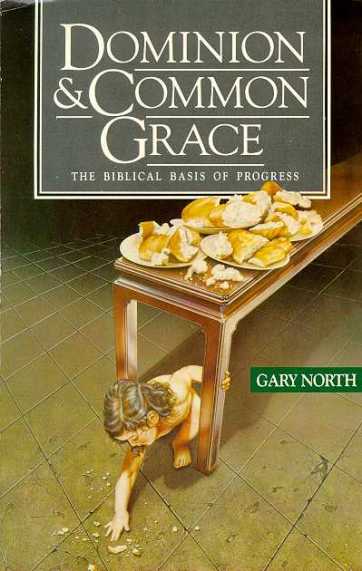 “What’s It All About,… Ga-ry?”
“What’s It All About,… Ga-ry?”
What is the subject of Dominion and Common Grace?
More to the point, who is the subject?
You know Gary, Dr. North. He takes no prisoners. And he is “no respecter of persons” when it comes to picking his subjects/victims for literary scrutiny.
His subject in this case is one of the key figures and leading theological thinkers — or as Dr. North refers to him, a classic “puzzler” — a “founding father” in the arena of Christian philosophy and presuppositional apologetics.
Dr. Cornelius Van Til.
If you know anything about Dr. Van Til, you know he was no mean theologian and philosopher. And you know the doctrine of common grace is no mean doctrine and not a trivial matter. (Although, after reading this book some may accuse Dr. North of being mean and trivial to Van Til, the Christian Reformed Church and amillennialists in general.)
In any event, you can’t accuse Dr. North (without being 100% wrong) of being unfair, disingenuous and denigrating towards other leading theological thinkers who fairly, honestly and judiciously differ and disagree with him. For proof, just read the dedication page:
This book is dedicated to / John Frame / an uncommonly gracious man, / who will do doubt conclude that / portions of this book are good, / other portions are questionable, / but the topic warrants further study.
An uncommonly gracious dedication.
Now, let’s take a look at the uncommon perspective on common grace offered in this book.
In his preface, North lays out the central theme of his argument. Namely, that a biblical doctrine of common grace is crucial to a right understanding of history and especially of the Bible’s teaching on “last things”: eschatology. A wrong understanding is why most modern Christians reject postmillennialism in favor of eschatologies of defeat: amillennialism and premillennialism. On this point, by the way, he says that he is not out to prove postmillennialism in this book: “I simply assume it, and then get on with the business at hand.”
The business at hand, at least for a large portion of the book, is to show how it is that a final rebellion of Satan at the end of history — prophesied in Revelation 20 and agreed on by “99.9% of all Bible-believing Christians” — can take place, and the postmillennial position (gradual, progressive spread of the kingdom of God and general success of the Gospel) still be correct.
He calls it, The Postmillennialist’s Problem.
He reassures fretting postmillennialists, there is a solution.
The solution involves answering these two questions — two of five that he poses:
- How can unbelievers possess so much power after generations of Christian dominion?
- How can a world full of reprobates be considered a manifestation of the kingdom of God on earth?
Answer these, and you resolve the “postmillennial problem.”
As for the other three questions, he answers them briefly.
- Does a theology of the extension of God’s kingdom on earth require that almost everyone on earth in the era close to that final day be a born-again believer in Christ? Answer: No.
- Can born-again believers fall from grace and then rebel? in short, can Satan gain recruits from the born-again invisible church? Answer: No.
- Can unbelievers seem to be saints in the camp of the saints, almost as spies who successfully invade an enemy military camp? Answer: Yes.
With that, the groundwork for answering all five questions is laid. The full development of the answers, especially to the first two questions, comes later.
And with that, the groundwork for discussing the contents of Gary North’s book, “Dominion and Common Grace” is laid.
Next, I will cover what North says in his Introduction are the crucial elements for understanding what common grace is (as opposed to special grace), how it operates in history (think continuity vs. discontinuity, Christ’s parable of the wheat and the tares), and how and why the modern debate over common grace started in the first place (hint: it involved a bunch of Calvinist Dutch guys!).
Speaking of “continuity” and “discontinuity”. . .
Continuity: the remaining nine chapters of the book, plus the Conclusion and Appendix, will be discussed in future installments.
Discontinuity: this post has ended. (Go in peace.)
